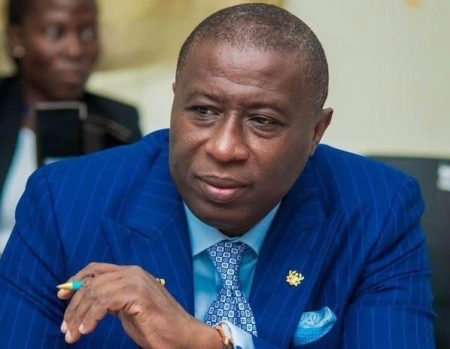Eco Restore, a prominent reforestation and social enterprise, has embarked on its annual tree planting campaign in Takorayiri, Ghana, aiming to plant 142,000 trees by 2025. This initiative, aligned with World Environment Day’s theme of “Beat Plastic Pollution,” underscores Eco Restore’s commitment to sustainable land use, biodiversity restoration, and enhanced food security. The project is a vital component of the larger Global Shea Landscape Emission Reduction Project (GSLERP), a five-year program funded by the Green Climate Fund and implemented in collaboration with the Forestry Commission, the Global Shea Alliance, and the United Nations Development Programme. This comprehensive approach highlights the interconnectedness of environmental restoration and global climate action.
The tree planting initiative, encompassing 100,000 Shea trees and 42,000 non-Shea trees across 19 communities, focuses on reversing land degradation and improving soil health. Eco Restore has partnered with Bunge, a leading Shea processor, and Agriterra to bolster agricultural productivity and ensure long-term food security. The project directly addresses the detrimental effects of deforestation, particularly the impact on agricultural output and the subsequent increase in food imports. By planting trees, the initiative aims to create employment opportunities, enhance food production, protect vital infrastructure, and support sustainable livelihoods, thereby reducing poverty and improving food security.
The local community has expressed strong support for the initiative. The Chief of Takorayiri, Mba Takora Dinbahara Debreu, praised Eco Restore’s efforts in restoring degraded landscapes and improving environmental health, emphasizing the importance of trees for clean air and traditional medicine. This local endorsement underscores the significance of community involvement in environmental restoration projects and the recognition of the multifaceted benefits of trees beyond their ecological role.
Dr. Peter Lovett, Executive Director of Eco Restore, highlighted the devastating effects of rampant deforestation caused by illegal logging, which has crippled agricultural output and necessitated increased food imports. He emphasized that the organization’s vision is deeply rooted in restoring biodiversity, enhancing soil fertility, and securing food systems for future generations. This long-term perspective reflects a commitment to sustainable practices and the recognition that environmental restoration is crucial for future well-being. Dr. Lovett also revealed that Eco Restore has planted over one million trees, including Shea and other species, in the past six years, demonstrating a sustained commitment to environmental rehabilitation.
The ecological benefits of the initiative are far-reaching, as explained by Dr. Iddi Zakaria, Deputy Chief Executive of Eco Restore. The project has the potential to mitigate climate change through carbon sequestration, improve air and water quality, reduce urban heat island effects, and preserve critical habitats for wildlife. This comprehensive approach highlights the interconnectedness of environmental challenges and the multifaceted benefits of reforestation. Dr. Zakaria urged public support for tree planting and preservation, emphasizing the need to replace aged and felled trees to ensure a healthy environment for future generations.
The launch event attracted significant participation from key stakeholders, including representatives from the Integrated Social Development Centre (ISODEC), the Centre for Ecological and Livelihood (CEAL), and the Cocoa Research Institute of Ghana (CRIG). This collaboration demonstrates a broad commitment to environmental restoration and sustainable development. The initiative represents a significant stride in Ghana’s efforts to combat climate change and build resilient communities through ecological restoration. This combined effort, involving local communities, international organizations, and governmental agencies, underscores the importance of collaborative action in addressing complex environmental challenges. The project serves as a model for sustainable development, demonstrating the potential for positive change when diverse stakeholders unite for a common environmental cause.














